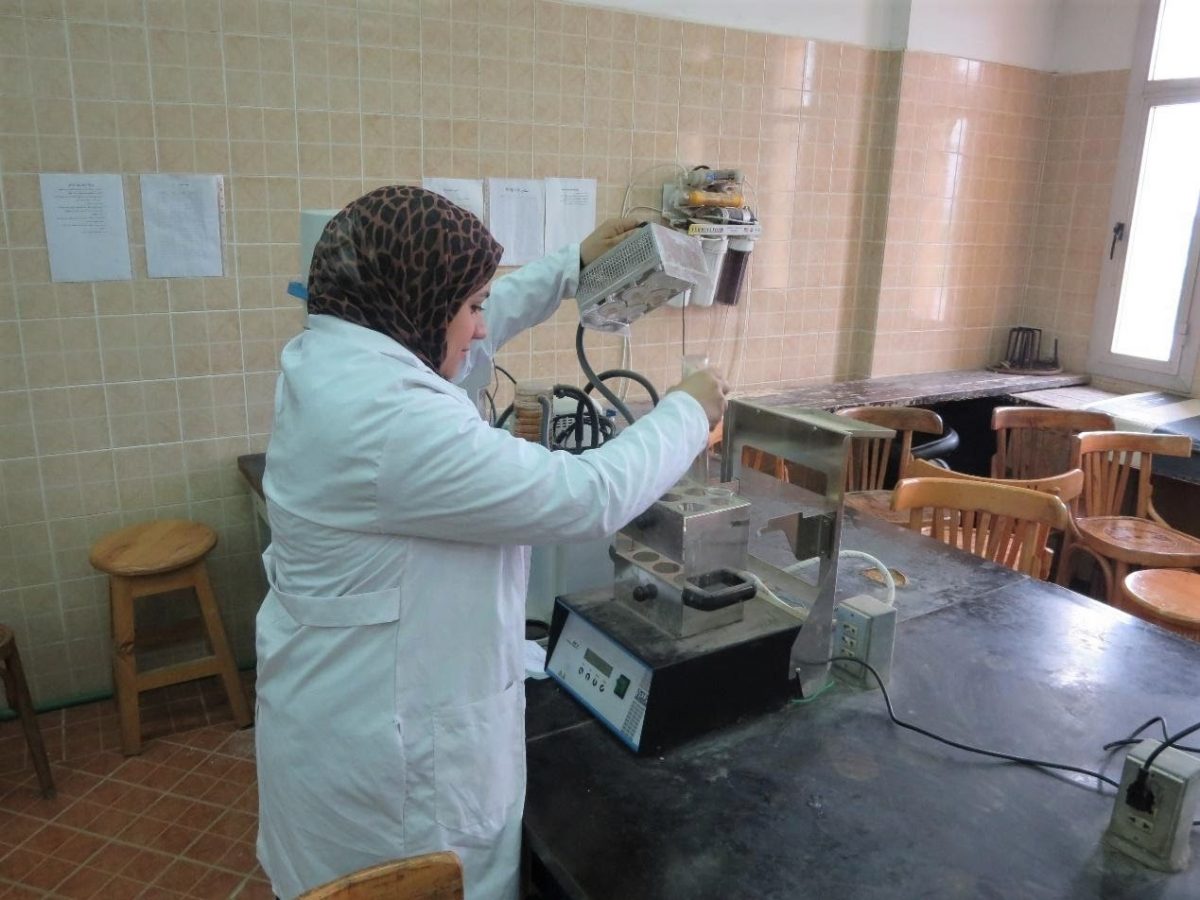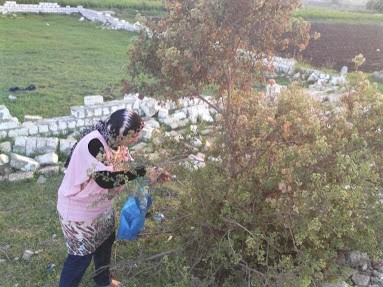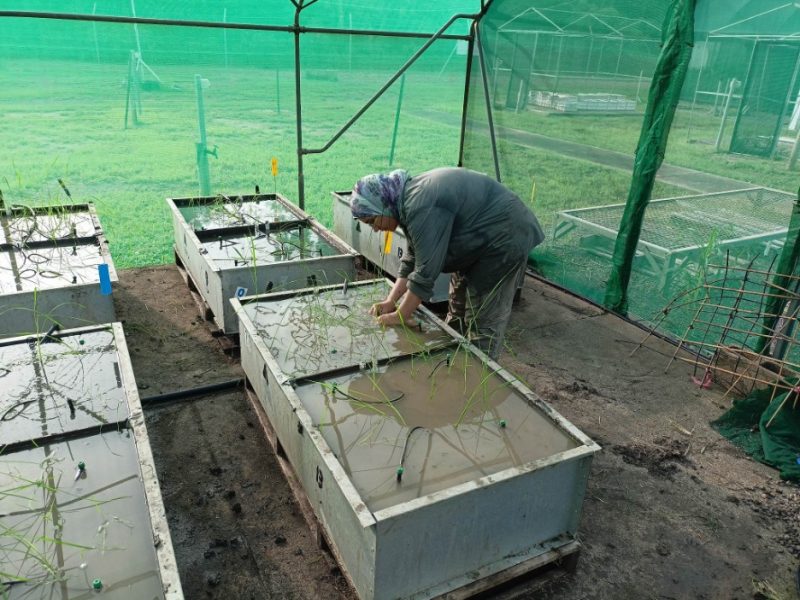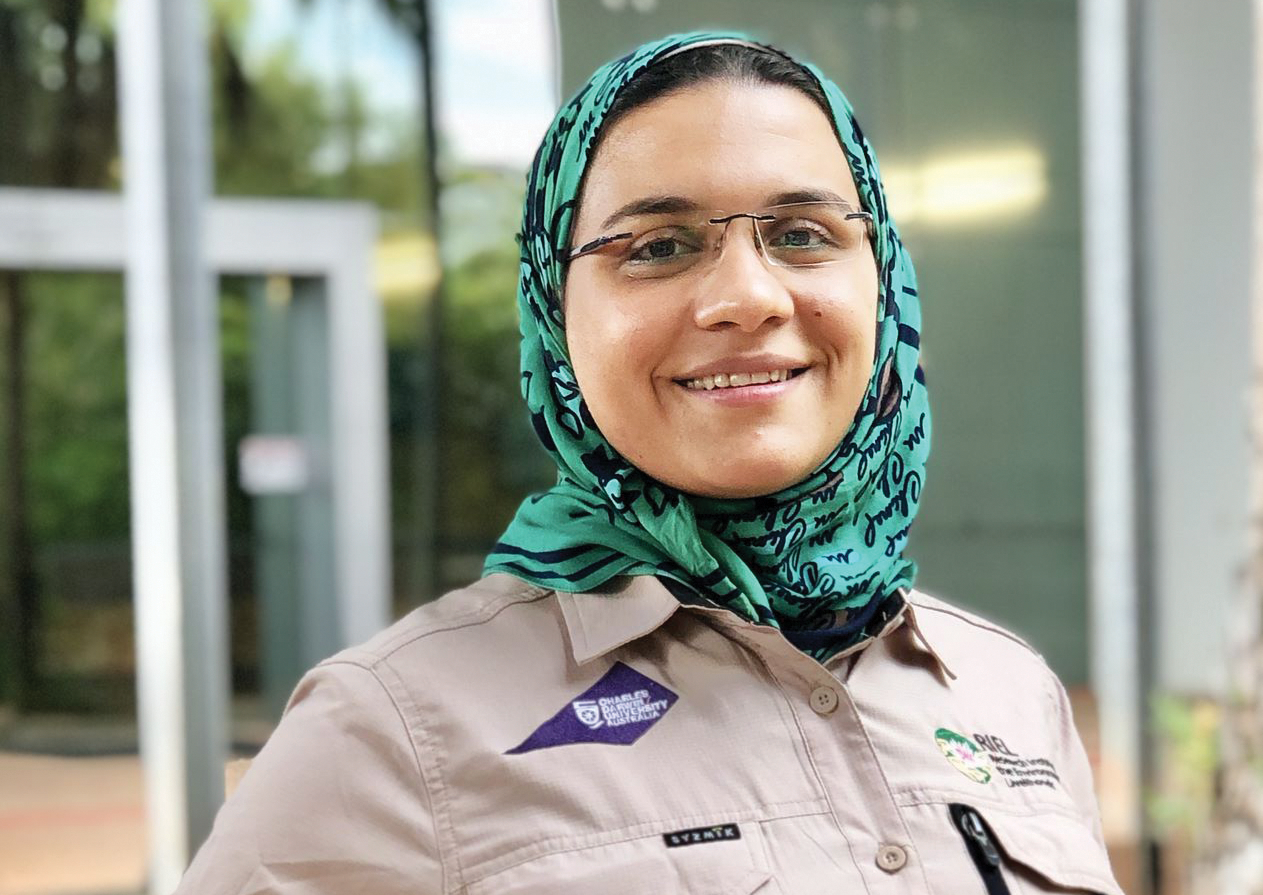For Egyptian academic Gehan Abdelghany, who’s spent much of her career to date finding beneficial uses of indigenous plant species, undertaking a PhD with the CRC’s ‘Commercialising native rice’ project is a natural progression.
Improving her own community by helping to show how a common native plant species could be used to detoxify polluted Nile Delta Egyptian land was Abdelghany’s springboard to an assistant lectureship at Tanta University, Egypt.
“I opted for an academic career to contribute to the betterment of my community by providing solutions to current issues relevant to my field of expertise. I aim to make a positive impact on people’s lives by exploring the role of wild plants to the local environment and community,” she says.
Ms Abdelghany completed her Bachelor’s in Botany and a Master’s in Plant Ecology – both from Tanta University, Tanta, a thriving city on the Nile Delta 90-odd kilometres north of Cairo, Egypt.
Along the way, she took out three Tanta University Awards for her academic distinction, and international publication).

PhD student Gehan Abdelghany, doing lab work as part of her Masters in Plant Ecology at Tanta University, Egypt. Credit: Tanta University
Using native plants to remove toxins from Egyptian soil
As a postgrad student, Ms Abdelghany helped find a new and important use for a species native to Egypt and the Middle East.
“My Master’s investigated the role of wild Egyptian shrub Pluchea dioscoridis in mitigating the effect of heavy metals in polluted Egyptian areas,” she recalls. “It was found that this shrub could accumulate high levels of heavy metals, particularly Cr [chromium], in its above-ground parts without showing any toxicity symptoms. Therefore, harvesting these parts periodically could implement a strategy to reduce the level of heavy metals in contaminated soils in Egypt.”
The research had valuable real-world application in cost-effective environmental phytoremediation – and academic credibility: “We were able to publish our results in peer-reviewed journal,” she notes.
It paved the way to a teaching position at her alumnus: appointed an Assistant Lecturer in the Botany Department, Faculty of Science, Tanta University, Egypt. Ms Abdelghany taught undergraduate students while pursuing her research interests in plant population ecology, phytoremediation, plant responses to stresses.

Gehan Abdelghany collects samples of native plant species as part of her studies in Plant Ecology at Tanta University. Credit: Tanta University
From the Nile Delta to Northern Australia
Since Australia has an international reputation for high-quality research and teaching, Ms Abdelghany applied to do her doctoral study at Charles Darwin University (CDU) “to be well prepared and qualified for my future scientific endeavour – including being an independent researcher, supervising students, giving lectures, and developing my research skills”, she says.
She joined CDU as part of the Future Food Systems CRC’s initial PhD cohort in early 2020, engaged on the ‘Agronomic investigations of Australian native rice species to support Indigenous enterprise development’ project – otherwise known as the ‘Commercialising native rice’ project.
Based in the Research Institute for Environment and Livelihoods (RIEL) at CDU, she is being supervised by project lead and senior lecturer Dr Sean Bellairs (CDU), Dr Penny Wurm (CDU) and Dr Linh Hoang (Queensland University of Technology).
Dr Bellairs, with colleague Dr Wurm, has been researching native rice species extensively for many years. Under FFS-CRC, they’ve formed a research collaboration that aims to explore optimal ways to grow, harvest and market rice species native to the region for the benefit of Indigenous enterprises and communities across Australia’s north.
The project, involving CDU and QUT researchers, the Northern Territory Department of Industry, Tourism and Trade (DITT) and Indigenous-led enterprises – initially, two in northern Australia and a third in Manitoba, Canada – runs for four years, giving Ms Abdelghany ample time to complete her doctorate.
The ‘Commercialising native rice’ project aligns well with her interest in projects benefiting local communities. “The project will help in developing Indigenous enterprises, providing Indigenous communities with economic options to improve their local livelihood,” she says. “Also, it will provide knowledge on different management protocols [needed] to successfully cultivate Australian native rices in northern environments.
“This project is investigating the agronomy and cultivation of Australian native rices, and the outcomes will be of great significance to Indigenous communities wanting to cultivate and supply a high-value native grain product.”

Gehan Abdelghany transplanting wild rice seedlings at CDU research shade house. Credit: Charles Darwin University (CDU)
Australia on hold – doctoral study underway
Abdelghany, appointed to the project in March 2020, was about to pack up her life in Tanta, Egypt, and make the long journey to Darwin, Australia when the SARS-2 coronavirus pandemic hit – and with it, restrictions on international travel, including flights to Australia.
Along with tens of thousands of other international students enrolled at Australian universities in 2020, she was forced to put her travel plans on hold. Not so her study plans.
“I have a great support from my supervisory panel,” Abdelghany assures in 2020. “We organize a weekly Zoom meeting [so I can] keep progressing on different chapters of my thesis and proposal preparation. I have successfully submitted my proposal and completed my confirmation of candidature milestones.
Data access is simple, she says: “using my CDU email enables access to different CDU online resources including a research library, Interlibrary loan requests for non-available PDFs”. She’s also attended several workshops and HDR seminars online.
Arrival in Darwin – hands-on trials begin
Ms Abdelghany finally arrived in Darwin, Australia in late December 2021. From the beginning, she has impressed her CDU supervisors and the project team: “My assessors were highly impressed by the written proposal and the quality of my presentation,” she recalls.
By the time she left Egypt, she had already written a review paper – which will become the first chapter of her PhD thesis. It was published on 25 December 2021 in Agronomy, a Q1 journal. The second will be a meta-analysis paper that has already been drafted.
Ms Abdelghany anticipates that she will submit her PhD thesis for examination in late March 2024.
This article was first published on 24 November 2020. It was updated on 25 July 2023.


